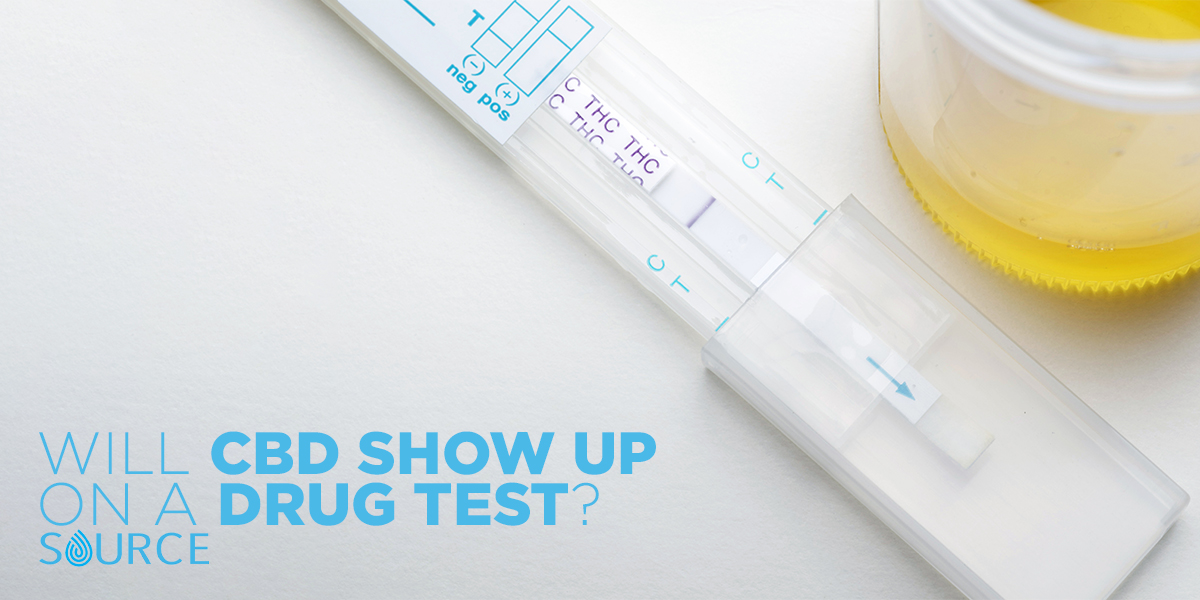CBD Oil News
Does CBD Show Up on a Drug Test?
Are you worried about failing a drug test because of CBD oil? Does CBD show up on a drug test? There have been many media reports over the last few months regarding drug testing and CBD, specifically with regard to workplace testing.
And, since it’s a complex question (and answer), it’s important to understand the ins and outs.
Does CBD Show Up on a Drug Test?
Let’s start by saying that drug tests don’t test for CBD. CBD alone won’t show up on a drug test, even if you’re chugging a bottle a day (which you’re not). Drug tests only test for certain compounds – things like:
- alcohol
- amphetamines
- benzodiazepines
- opiates
- cocaine
- cannabis
You may notice though that “cannabis” is on that list. That’s where the confusion, and concern, lies.
The most common type of drug test used in the Unites States is a urine drug screen. This is an immunoassay test, which uses antibodies that latch on to specific drugs for detection.
If the antibodies identify a drug at a certain concentration level, they produce “positive” result. If it’s under those levels, it will show up as negative.
That said, false-positives are possible, and not uncommon, so lab technicians are usually highly aware.
So, technically, if your CBD contains THC – which is very, very common, especially with full spectrum, there is a chance. Be assured, it’s a very slim chance, but a chance none-the-less.
THC in CBD?
In the United States, hemp-derived CBD products are legally required to contain less than 0.3% THC content.
But why is there even THC in your CBD?
Hemp-derived CBD naturally contains low levels of THC, but if it’s within that 0.3% threshold, it’s not anywhere close to enough to be intoxicating. That means it isn’t going to give you any of those mind-altering effects that you’d get from, say, smoking marijuana.
We stumbled across this perfect analogy from The GrowthOp, and thought we’d share it since it illustrates the difference really well:
“The best way to explain the difference is by putting it in terms of beer. Most domestic brews contain between 4.2 and 5.5 percent ABV (Alcohol By Volume), while non-alcoholic versions have only around 0.4 percent ABV. While these booze-free concoctions technically do have some alcohol, the consumption of these beverages cannot lead to intoxication. Just the same as CBD products with 0.3 percent THC cannot produce a high or put the user in jeopardy of failing a drug test.”
So yes, your CBD might contain trace amounts of THC, but if that’s the case, it’s for a good reason. With full spectrum CBD specifically, all of those different compounds (the CBD, CBN, CBG, terpenes, AND THC) work together because of something called the entourage effect.
The entourage effect a term that describes the way all these beneficial compounds work together in your body. It’s when they work in synergy to create an effect that’s more powerful than what they can do on their own. So, it’s kind of like a team sport – and we all know there’s no I in team.
Different Tests = Different Results
It’s important to note that different types of drug tests have different detection thresholds.
Most workplaces use urine tests, which have low detection thresholds.
As toxicologist Brenda Gannon states, “depending on a number of parameters—including amount consumed, how often one uses CBD products, and body composition—it is possible that these trace amounts of THC could accumulate and then be detected in a drug test.” Postdoctoral fellow at the National University of Natural Medicine and the founder of the Center for Medical Cannabis Education, Jamie Corroon, agrees: “It’s possible, but it’s highly unlikely.”
Oral swab tests have similar detection thresholds as urine tests.
Hair tests tend to have higher detection levels. These types of tests are designed to identify chronic substance use. That said, most agree that if your CBD oil only has trace amounts of THC, and you’re not using an excessive amount, it still probably won’t show up in a hair test.
Still Worried About it? Here’s What You Can Do
We know that many people now rely on CBD for a number of reasons. Daily use is great for so many things (of course we won’t mention them here – here’s why). So, if you’re worried about workplace drug testing and the off-chance your CBD might show up on a drug test, what are your options?
Since THC (and not CBD) is what drug tests test for, it’s time for a THC detox.
- Take a break. It sucks, but in order to detox completely from THC, you need to take a brief break from it to clear it out of your system.
- Exercise. THC is stored in the fat cells of you body. Unfortunately, for those who have more fat, detox might take a little longer. Exercise like cardio and weight training will help burn fat and increase metabolism and speed up the detox process.
- Have some herbal tea. Look for teas with high levels of antioxidants, or liver-cleansing teas like dandelion or milk thistle to help flush out your system.
- Up your H2O intake. Drinking lots of water will help cleanse the body.
Does CBD Show Up on a Drug Test? Final Thoughts
If you’re worried about CBD showing up on a drug test, rest assured that the chances are low, but the possibility is there. Again, the chances depend on various factors, such as how much you take and the concentration of THC in your CBD. If you’re overly concerned, perhaps take a brief break before a test and do the detox tips we mentioned above.

